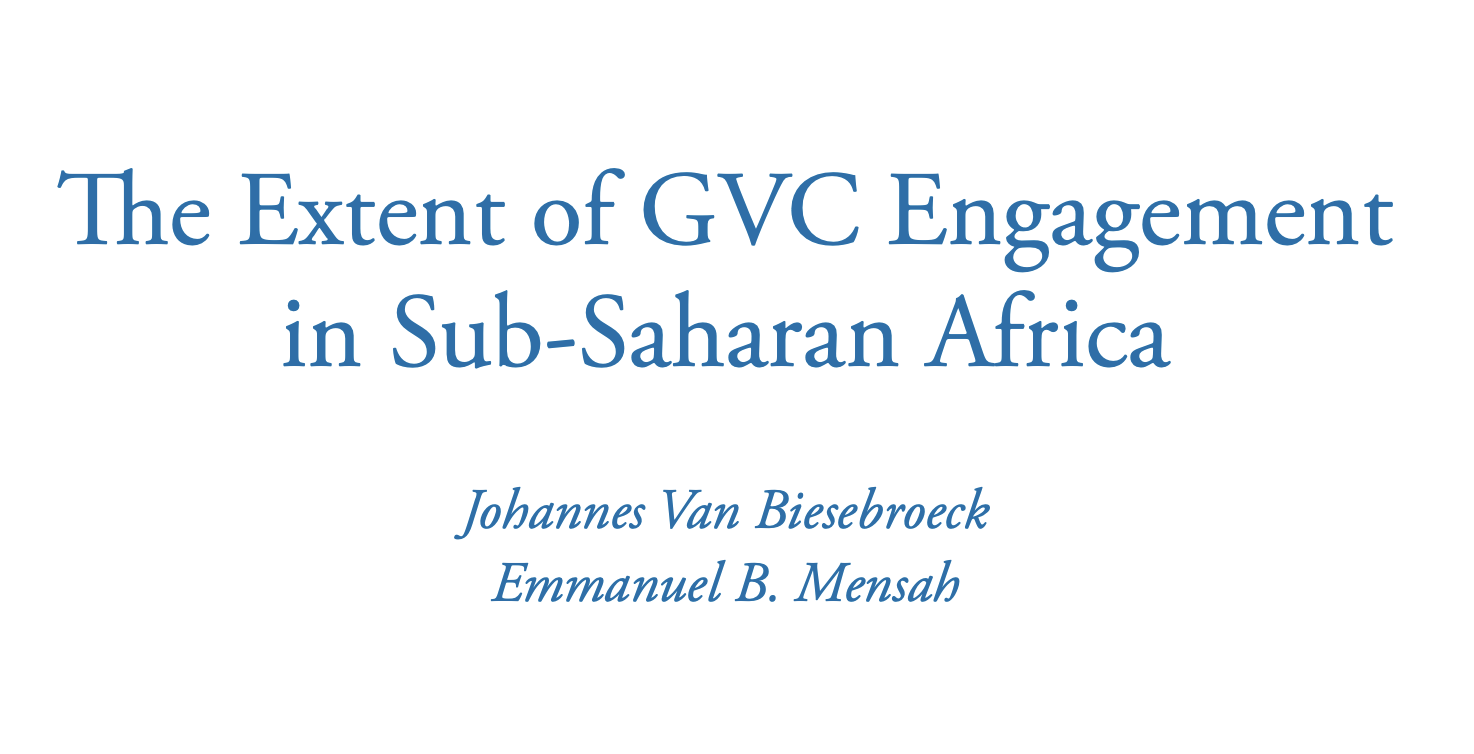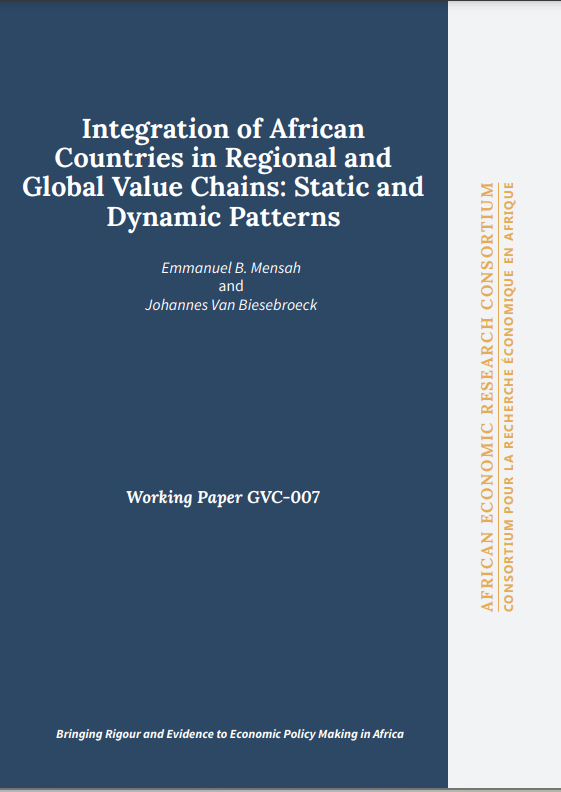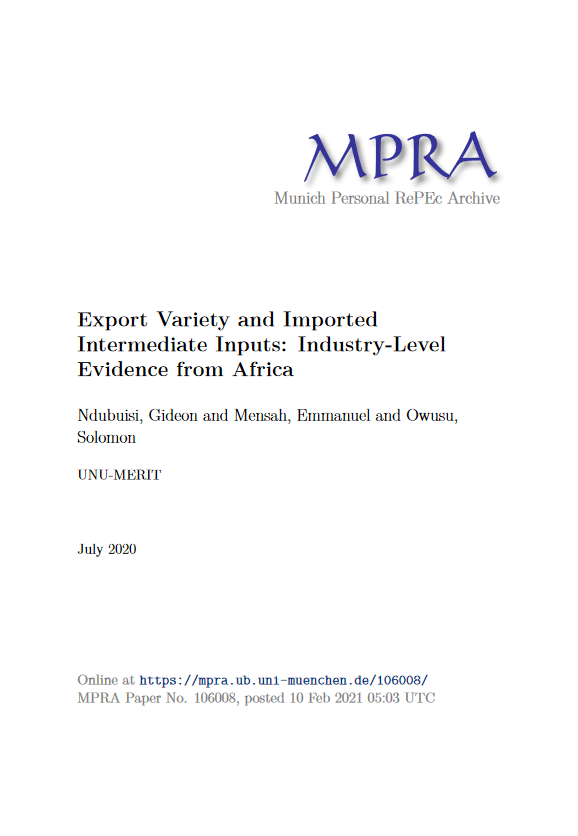︎

Emmanuel B. Mensah
Utrecht University
Emmanuel Buadi Mensah is currently associate professor at Utrecht University. Between 2020-2022, he was postdoctoral researcher at the University of Groningen, Faculty of Economics and Business, and Fellow at Groningen Growth and Development Center. He holds a Ph.D. in Economics from UNU-MERIT/Maastricht University, a Master of Science in Development Economics from SOAS, University of London, and a Bachelor of Arts degree in Economics from the Kwame Nkrumah University of Science and Technology, Ghana. Emmanuel previously worked at IMANI Center for Policy and Education as an Economist/Monitoring and Evaluation Specialist. At IMANI, Emmanuel worked on development projects for the World Bank, OSIWA, AfDB, and Agricultural Development Bank. Emmanuel was among the first cohort of fellows at IMANI who pioneered the assessment of the feasibility of political party manifestos in Ghana. Owing to this work, keen interest in critical evaluation of party manifestos has taken root and become an integral part of Ghana's political cycle. His research focuses on development economics, in particular, the economics and measurement of structural change. He also has a strong interest in global value chains, innovation, firm performance, and trade. Emmanuel has consulted for the World Bank on industrialization in Africa.
MORE ABOUT EMMANUEL B. MENSAH >Mar 15, 2024
Johannes Van Biesebroeck, Emmanuel Buadi Mensah
The Extent of GVC Engagement in Sub-Saharan Africa
This paper exploits information from two different datasets to provide a novel and multi-dimensional picture of the engagement of all sub-Saharan African countries in global value chains (GVCs). It documents in detail the nature of the underlying data and the way it is used to construct several indi...

Nov 21, 2023
Emmanuel B. Mensah, Johannes Van Biesebroeck
Intergration of African countries in regional and global value chains: Static and dynamic patterns
We study the geographic concentration of trade flows of African countries using information on the global input–output structure of trade from the Eora database. Most countries show a similar concentration between close-by versus long-distance trade in their foreign input sourcing as in their expo...

Jan 1, 2020
Gideon Ndubuisi, Emmanuel Mensah and Solomon Owusu
Export Variety and Imported Intermediate Inputs: Industry-Level Evidence from Africa
Imported intermediate inputs offer access to lower-priced, higher quality, and a wider variety of inputs that can increase the possibility of producing and selling more diversified products in foreign markets. In this paper, we examine this relationship using a novel manufacturing industry-level dat...

